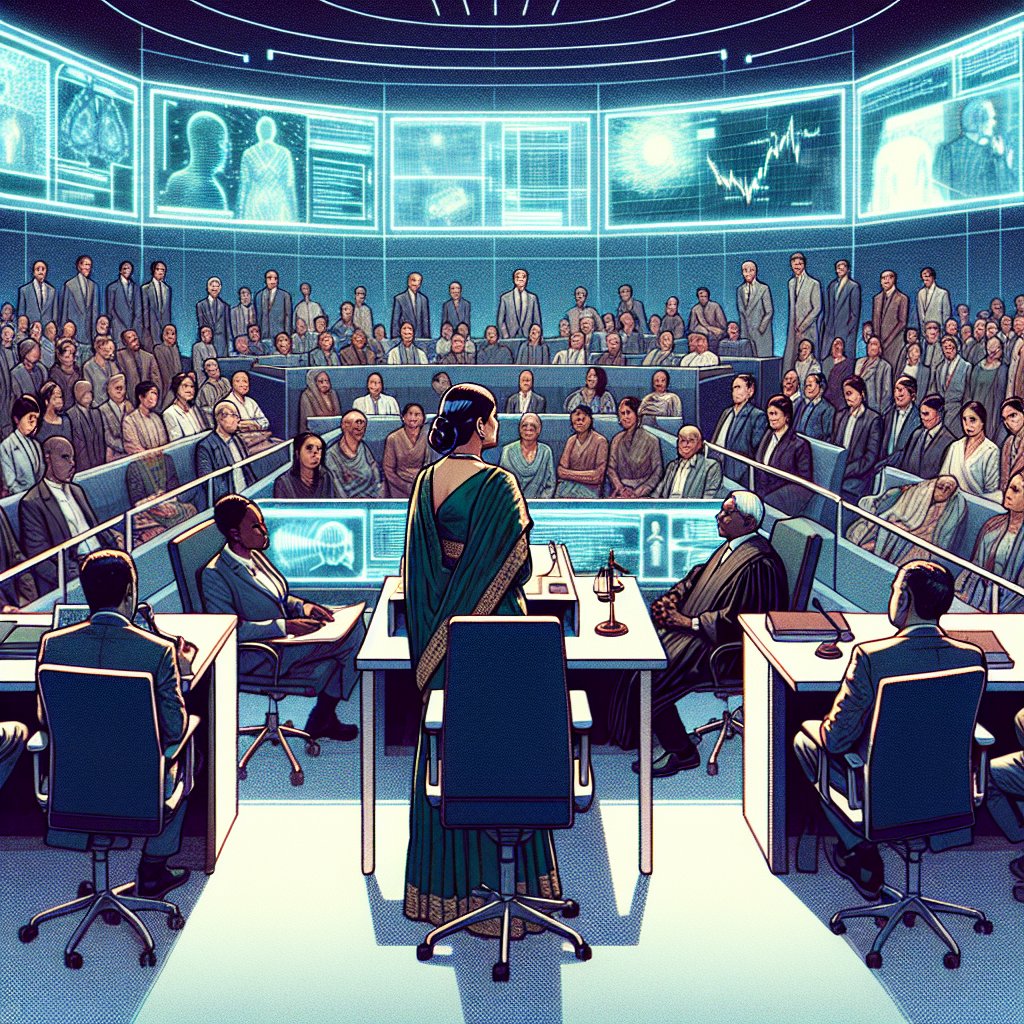Image created by AI
Court Wrestles with Mkhwebane’s R10m Gratuity Claim Amidst Allegations of 'Constitutional Delinquency'
The North Gauteng High Court in Pretoria is currently deliberating a contentious issue that stands at the intersection of legal precedent and constitutional responsibility. In the spotlight is Busisiwe Mkhwebane, the former Public Protector of South Africa, who was impeached due to accusations of misconduct and incompetence. At the core of this judicial scrutiny is Mkhwebane's claim for a R10 million gratuity, a payment that her critics argue would reward what is termed as 'constitutional delinquency'.
Mkhwebane’s pursuit of this significant sum follows her removal from public office – a removal that is historic in being the first of its kind under Section 194. Her dismissal was cemented by an impeachment proceeding in the National Assembly, which left the role of the country's moral watchdog stained with controversy.
The Public Protector of South Africa, represented by Counsel Tembeka Ngcukaitobi, has vehemently opposed the granting of this largesse, warning of the grave implications it would have for South African law. Ngcukaitobi, in his representation before Judge Omphemetse Mooki, noted that Mkhwebane’s claim is not only ungrounded but also leans on repealed portions of the Public Protector Act.
In the courtroom, statements were charged with historical and legal analogies, notably from Mkhwebane's Advocate Dali Mpofu, who drew parallels between her and revered anti-apartheid figure, Robert Sobukwe. This comparison, however, was quickly dismissed by Ngcukaitobi as inappropriate, highlighting that Mkhwebane's actions and the resultant denial of gratuity stem from a legislative, not discriminatory, rationale.
The condemnations against Mkhwebane encompassed a range of alleged improprieties: from impartial conduct and mismanagement of resources to illicit interaction with classified information - all of which contributed to her impeachment. Advocate Terry Motau, speaking for National Assembly Speaker Thoko Didiza, further outlined the adverse findings against her, which included unauthorized probes into high-level political matters and state functions, further undermining her claims to the controversial gratuity.
With Judge Mooki reserving judgment and stating that a decision will be forthcoming, the nation waits on tenterhooks for a conclusion to this saga. Regardless of the outcome, this case has thrown into stark relief the responsibilities and expectations of constitutional office bearers in South Africa, as well as the consequences of their failure to uphold their sworn duties.










